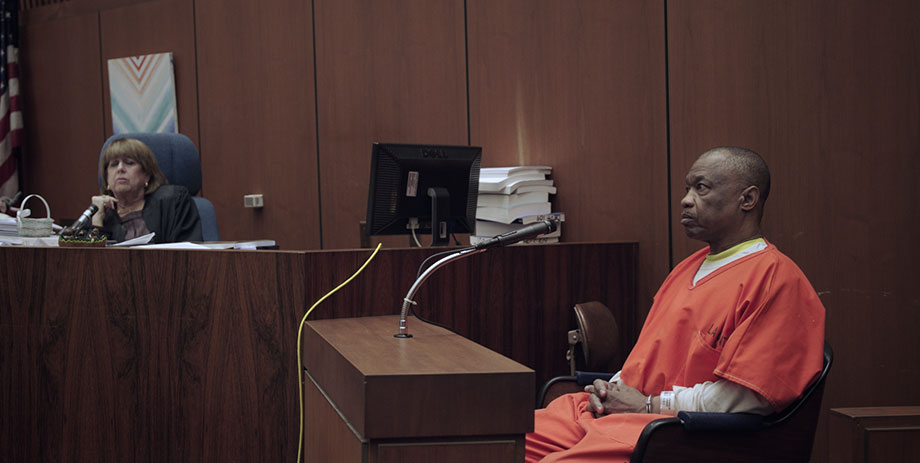The political is personal, and all pervasive, as revealed over and over
as we move to the first full day of screenings at the 41st edition of
this year’s festival. The mode of political inquiry, moral, aesthetic
and existential is recurrent in the early works shown here.
It is inescapable.
“Rosewater” is the directorial debut of the observant and often
lacerating political humorist, sometime actor and “The Daily Show” host Jon
Stewart, here adapting the memoir of the Iranian-born author, filmmaker,
playwright and journalist Maziar Bahari.
Bahari, who’s made his own films about the highly repressive social
order and political state of Iran’s theocratic rule, was a Newsweek
correspondent and political exile living and working in London.
Returning to Tehran in 2009 to write about the contested national
elections, Bahari was arrested and charged with being a subversive,
CIA-sponsored spy.

Stewart adapted the memoir and constructs a two-part narrative
structure, built on themes of discovery and confinement, as Bahari’s
contentious family background (his father and sister were both
imprisoned for their communist leanings) bleed into the present. Gael
Garcia Bernal plays the journalist, and Stewart is not quite able to
entirely transcend the aesthetic and narrative complications of casting a
Mexican actor in the lead and playing the material in accented English.
Bernal, wiry and engaged, has always been an alert, physically
compelling actor and he works through the awkard initial passages with
an innate grace and intelligence. Stewart wisely acknowledges the
cultural displacement, underlining the character’s Western assimilation
with a pregnant English wife, and the casting of Bernal exacts its own
form of Brechtian distancing.
The first part is intelligently rendered though somewhat bloodless and
clinical. Stewart struggles to find a consistent rhythm against the
flashback-driven structure of the first half. His personal
identification with the material is never questioned.
The film achieves a sharper edge and far greater psychological acuity
once Bahari is arrested, cruelly blindfolded and detained in solitary
confinement. The movie grows and finds a bleak, sinister and blackly
comic absurdity in the political and moral exchanges between Bahari and
his interrogator (Kim Bodnia), the blunt jailer and investigator
assigned to secure the writer’s confession.
Stewart is more comfortable and assured working in the claustrophobic
and restricted space of the solitary cell. Bobby Bukowski’s volatile and
whip-fast cinematography is disruptive as it circles and moves around
the two men’s bodies, catching glances, moments of pain and
vulnerability. Bernal has a dancer’s lithe body and supple movements,
but it’s the interior qualities, the humor, that is the most jolting and
immediate.
“Rosewater” is about a collision of ideas, not only of East and West, or
even liberal democracy and theocracy, but a divide permanent and
probably unresolvable in the conflict between information and security.
It’s not enough to draw blood, says the interrogator’s Stalinist boss.
“You must take away his hope.” This is a bleak film, in many ways,
marked by sorrow and rage. It also adds another impressive layer to the
achievements of Jon Stewart.

The British documentary filmmaker Nick Broomfield, like Stewart, has a
great journalist’s instinct but not always his discretion. His stories
of crime, celebrity and political corruption are often fun to watch, but
a great many of them have been marred by a fussy, sensational technique
that turn too many of his subjects into grotesques worsened by his need
to superimpose himself over the material.
No such qualms with his new, and I think, finest work to date, the
mesmerizing, chilling and greatly disturbing “Tales of the Grim
Sleeper.” It’s another of his true crime stories, a meditation on race,
class, institutional racism and abject horror as he moves around the
story of Lonnie Franklin, a South-Central mechanic and purported serial
killer, the “Grim Sleeper,” who preyed on black, poor women who were
prostitutes or drug addicts.
The first victim was traced to 1987, and the movie unearths a staggering
and haunting reign of terror. Franklin was arrested four years ago and
is awaiting trial in Los Angeles on charges of killing 10 women and
whose complete number of victims is unknowable, though it carries into
at least 100 women, and more likely a great many more.
Broomfield made the film with his son Barney, the primary camera
operator, and his producer, Marc Hoeferlin. He is, thankfully, a more
moderated and adjusted presence here, probing and serious but not
theatrical or self-regarding. He is an ethnographer, intelligent and
open, who brings a bracing perspective and empathy to a struggling
though vigilant black underclass suffering from systemic racism, the
collapse of the industrial economy and political disenfranchisement.
Pretty much shut out by official government representatives and the the
police, Broomfield instead explores the case from the ground up. Less
structured around questions of guilt, the movie is drawn to process and
form as Broomfield elicits clear-eyed, profane and direct testimony from
friends of Franklin’s, the bereaved and devastated family of those
killed and the grass-roots, civil rights activists who are clamoring for
greater official disclosure on the investigation and why the police
suppressed valuable evidence from the public for more than two decades
in some instances.
The three associates of Franklin have a craggy, lived-in existence of
difficulty and personal demons that only accentuates their humanity and
desire to find some trace of the rationale and known in trying to
explicate his actions. The community activists traffic in rage and
powerlessness against a closed-off system.
Stylistically, Broomfield films them in medium close-ups and largely
unbroken shots that grants them a grace, dignity and individuality that
is absolutely heartbreaking. And a late interview with the only known
survivor of the Grim Sleeper is the kind of plea for appreciation and
recognition that leaves you broken and choking up.
Most significantly, Broomfield cedes much of the film to the outsized
and remarkable personality of Pamela Brooks, a 45-year-old recovering
addict and former prostitute who becomes his entry point to the daily
textures and rhythms of life in South-Central. Brooks is an enthralling
figure, touching, warm, emphatic (“And that’s when the shenanigans
began,” she says at one point) and riotously profane and funny. She
offers a depth of characterization without ever forgetting her own
private demons.
Even if one did not see this film in the wake of Ferguson, “Tales of the
Grim Sleeper” registers like a brutal shock to the system. It is
virtually impossible to not be appalled by the lack of transparency by
Los Angeles police and prosecutors and how meager were the resources the
city and county deployed to identify the severity of the problem.
The film feels a bit overlong and repetitive at times, and my most
significant complaint is that Broomfield does not adequately address the
earlier work, particularly the astounding journalism produced by LA
Weekly, on many of the same material.
Those problems are fairly minor in the context of the film’s remarkable achievements. The movie burns in the memory.












